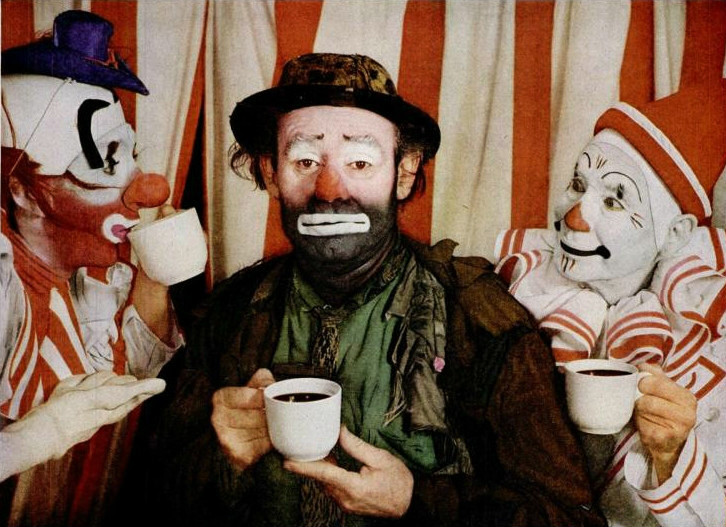At the best of times Edinburgh Fringe Festival can be alienating, difficult and mentally exhausting. Artists share beds with their peers and spend their days being rejected whilst flyering on the Royal Mile. They glance two star reviews from journalists who “didn’t get it” before stepping out on stage attempting to make the average Fringe audience clap – surviving the Fringe is a marathon for the mind and soul.
Every year a common theme emerges – last year saw a fair few Thatcher inspired shows, the year before saw feminism wonderfully re-engage with its radicalism. This year a wealth of brilliant artists have taken the plunge and opted to share their mental health issues — but is the fringe the right environment to share such fragility?
It’s no secret that many artists suffer with their mental health, including myself, so why shouldn’t we shout about it? The ability to entertain often comes hand in hand with this debilitating cloud, so why has it taken 68 years of the festival before the issue has taken centre stage? Well, it takes guts! Some might say Ruby Wax’s seminal show, Loosing It, in which she revealed her own relationship with depression, gave birth to this years’ army of bravery, but I think the arts is full of pithy statements about origin, all of which are really unhelpful.
“I didn’t know how else to explain to my friends and family what was happening to me – I am perceived as a smiling idiot, I just knew I had to build up the energy to sing about it,” says the brilliant Brigitte Aphrodite via text message. Her show, My Wonderful Black Dog,encourages audiences to own their depression and throw glitter on it; “When a bout ofthe depression takes hold, trying to forget the negative voices is hard – the horror isn’t the real you – it’s the black dog barking loudly.” Rising star Jack Rooke’s impetus was much simpler albeit painfully ironic; “The town I live in was voted the happiest place to live in Britain… the week my Dad died.”
For many years the Fringe has largely been a comedy festival and some artists are using this to their advantage. “Laughing and crying are like twins. My crying sounds exactly like Jimmy Carr’s laugh,” Rooke chuckles. His show, Good Grief, explores how we deal with loss and treat those left behind, which on the face of it sounds like no laughing matter but as he makes clear, “Humour is the best tool we have for confronting our fears and sorting our heads.” Operatic super star Le Gateaux Chocolat has also decided to use comedy to come clean. In his debut theatre solo show, Black, Le Gateaux demonstrates the ability to make your belly sore from laughing with tales from his days as an NHS telephone operator, then almost immediately brings you to tears through confession; “My dear friend and mentor, Adrian Howells committed suicide, inspiring me to have the courage to dispel, or at least make a dent in, the taboo. Depression remains a difficult subject to talk about but it’s my reality; the din of the sadness that persists beneath my ‘fabulous’.”
Shows like Bryony Kimmings and Tim Grayburns’s Fake It Til You Make It (almost) sold out before even opening at the Fringe, proving that evidently audiences are wanting to hear what lies behind the tears of a clown. Explaining the downside to sharing his depression, Tim says artistically, “Everyone now knows my crypt and I haven’t had one hater yet to be fair, but I’m ready if they do! Encouraging others to open up about their own depression is actually making me manage my own more efficiently. The denial prevented me from putting a plaster over it.” However, there are downfalls to picking ones scab repeatedly for audiences – it can create a scar, a scar that resulted in me, hungover, on a Sunday morning smashing up my own Fringe set.
The industry itself now acknowledges the scars these artists are baring when presenting such personal work under mental and financial pressure. Equity, the actors union, are running well-being and motivation workshops at Fringe Central throughout August, and The Mental Health Foundation are even presenting their first show at the Fringe, A Gala for Mental Health, that will raise money to support the foundation, and projects like The Sick of the Fringe — devised by the enigmatic Brian Lobel — is an innovative program that aims to bring the arts and science even closer, creating debate and discussion about the future of our health at a time when many are struggling.
The brilliant array of work exploring mental health at this years festival not only demonstrates the diversity of those affected but the complexities in which the subject is being excellently explored. So how does one mentally prepare for the Edinburgh assault? My personal regime includes a daily swim, steam and outdoor splash at Edinburgh’s OneSpa, then a proper slice of cream cake from Manna House Bakery (although Bryony Kimmings contradicts this by suggesting we all; “Stay healthy, climb Arthurs seat and protect your immune system and mental health by being sensible with your diet,” and Brigitte Aphrodite prepared for her run by doing wheat grass shots, “…for a while I thought they were helping until one day I just shit myself walking down the street.”)
However you keep afloat at the fringe or in real life make sure you see as many of the brilliant shows mentioned here – a shared experience allows us to understand we are not alone and that, after all, is half of the battle.
Credits
Text Scottee
